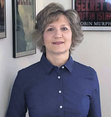Robin Murphy's Blog
January 31, 2022
RWS Interviews Sharon C. Williams
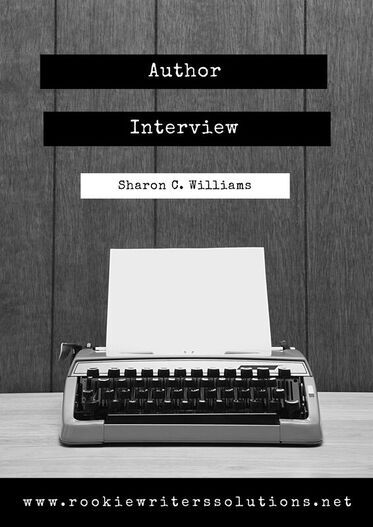 Name or pseudonym: Sharon C. Williams
Name or pseudonym: Sharon C. WilliamsWhat genre/s do you write in, and why? I write in comedy, short stories, children, and drama.
I learned early to write on what I know. Well, that is what I had read from books and told from other authors.
Some of my novels come from observations around my home. Since I knew the specific topics they pertained to, it seemed like a place to begin.
Drama is a genre I wanted to try. I no longer feel I should stick to what I know and I’m excited to try out new genres in hopes of challenging me.
When did you begin writing, and was it something you’ve always wanted to do? As an avid reader, I always considered authors magical people I would place high up. I was in awe at how they transformed words into chapters and into a story and weave it perfectly.
I came to writing in my early 40ties. It was something that kind of fell into my lap. I never thought of writing before.
My husband had told a friend of mine earlier that he felt I wrote well. Upon her telling me this, I thought to myself, ÒWhy not?Ó I started seriously writing in the Fall of 2009. I had a story in my head that would not let me rest. Having two surgeries at the end of 2009, non-related, gave me a lot of free time to put to paper the story.
What type of research goes into your writing? My children’s series is in the Amazon rainforest, to which I knew next to little.
Wanting the books to be educational and enjoyable, I researched the rainforest for months for the trees, animals, and plants. I have gone through at least half a dozen links to get the information right. I check links, books, and videos.
I want kids to learn, and by learning, maybe get engaged in the plight of the rainforest. I do this for the various genres I write. I want to be as accurate as I can.
I will also read books by authors who write in the genres I am writing in, especially if it is a new genre. I want to see how they go about the different aspects of that particular genre.
I have watched a variety of webinars to learn in any way to progress my writing.
How do you develop your characters, plot, and setting? For my children’s series, I have an advantage. It is about my rescued Amazon parrot, Jasper, who came to his forever home in 1999. He was five. After observing Jasper for about a decade, I created a character based on him.
My book, Squirrel Mafia, is about my war with the squirrels in my backyard. It is a comedy. But once again, after observing squirrels for years, I input them into a book.
In other manuscripts where I can not pull from observations, I will create characters from experience in my life. I will write up a complete bio of each character. I will include physical, mental, emotional, and spiritual aspects.
The setting sometimes comes from the character and the synopsis of the work.
For example, the pitch for my WIP, "Lost Faith," is, "A place in time where religion isn’t allowed." Once I chose the time frame that worked, researching began.
What is your creative process (i.e. inspiration, where do you write)? I always have pen and paper with me. You know, in case something comes up that I feel I can use for a present WIP or something I could use for later.
The inspiration for my children’s series is my parrot, Jasper. By observing him. Over the years, his personality that you would read in the series is moments I have seen him do.
My comedy series, Squirrel Mafia, is based on my war with the squirrels in my backyard, and they are my inspiration.
I write all over. I have written outside in my back yard, on my couch, in my office, and more. I like that aspect of being a writer.
I always write my first draft by hand. It is a witch to type up, but it suits me to do it this way. You will see my feet curled under me, hunched over a notebook as I write.
Have you ever dealt with writer’s block? If so, how do you find your creative flow again? When I tell people I have not, I tend to get a "Yeah, right," look. But it is accurate to a degree. I tend to work on more than one WIP at a time. If it takes me longer to work out a scene or dialogue, I will revert to another WIP or another part of the story.
While some can call this writer’s block, I smudge the line in thinking it isn’t.
Are you self-published or traditionally published? I am both.
Can you give us your experience in either or both of these types of publishing? With my traditional publishers, I have had to be willing to compromise. I have had to be on a different timeline when my books would be released. With various marketing tools, one avenue is offering your books at a discount or free for a length of time or permanently. That was a hard one to wrap my mind around. We all know how long it takes to get our book complete. It was not in my thinking to have it free.
They did have their in-house graphic artist and editor that was part of the contract, so that was less to worry about, and they handled the files placed on the various sites.
They do have a marketing department. Granted, I still have to do some on my own, but between the two of us, I am being noticed in way more places than on my own. They have the contacts I don’t.
The projects I self-published required me to do all of the work. I had to find my editor, graphic artists, and someone to help me learn how to upload or format the book. Some of this costs money that I did not readily have. The quality I could afford might not be of good quality. Also, marketing takes a lot of time away from your writing.
But with these projects, I was not in a contract, unlike with the traditional publisher, so I had total control of how I wanted it done, regardless of whether it came out great or not. I also get paid quicker and paid more.
I have enjoyed experiences in both. By doing so, I have been able to see behind the scenes. It’s given me a better understanding of the industry. With self-publishing becoming more and more popular, I think it is a good idea to cover both bases for your brand.
Do you market your own books? If so, how easy or difficult is this for an author? I do, but I do get help from my publisher. Marketing is very time-consuming. One has to find the platforms that work for them. It is constantly changing. What works one month may not work three to four months down the road.
One has to always keep on top of the revolving table of social media and marketing. Is it easy or hard? That depends on what you are trying to accomplish. What I do know is it takes time. You are working on your brand and yourself over time to get the most exposure possible. It is never-ending.
What advice would you give other writers/authors about receiving negative reviews? Receiving a negative review is hard. Also, we might want to respond to the critic. But we need to be careful. You are representing your book, brand, and yourself.
It bothers me when one puts so much time and effort into creating a book only to have someone trash it. Sometimes, you will find people write horrible things about your book even when they have not read it.
But I don’t respond. Getting into a match with someone doesn’t do you any favors.
What advice would you give to wanna-be writers who are trying to get a book published? Join a writer’s group. If you go on your own, write your book, edit yourself, and think you are ready to publish, I would politely disagree.
Your book needs to be in the best shape possible. You will miss things that others might not. The more eyes you get on your manuscript, the better before you start submitting it to publishers.
Also, make some goals for your book. Do you want to self-publish or go the traditional route? Are you ready to promote yourself? Publishers now, from my experience, are asking how much I am willing to market myself and what kind of social platform I have. You will need a social platform. If you don’t, who would you shout out to that your books are out there apart from friends and family?
If you had a chance to meet one of your favorite authors, alive or dead, who would it be? And what questions would you ask? Stephen King and R.L. Stine, without a doubt.
As a children’s writer and a fan of R.L.Stine, I would ask questions such as where do you get your ideas? How do you go about setting up your scenes and dialogue? Plus, as a children’s author, any advice from a master would be so helpful.
For Stephen King, I would ask where does he get his inspiration. I have a couple of WIPs with drama and mystery as the genres. I would ask how he would set those up.
List your book links and where we can find them to purchase:
The books I have out at the moment are:
Jasper, Amazon Parrot: A Rainforest Adventure
Jasper, Amazon Parrot: Rainforest Friends And Family
Jasper, Amazon Parrot: The Perils of The Jungle
Squirrel Mafia Vol 1
Everyday Musings
Walmart - Jasper, Amazon Parrot Series
Amazon; ITunes; Smashwords; Barnes & Noble [image error]
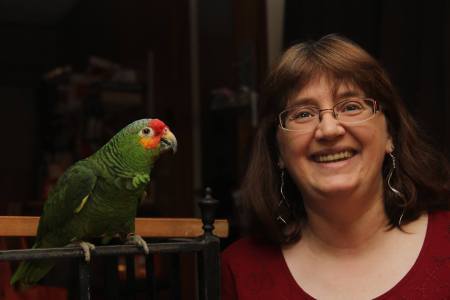
Published on January 31, 2022 04:30
January 17, 2022
Author Interview With Sean O'Leary
[image error] Name or pseudonym: Sean O’Leary
What genre/s do you write in, and why? Crime and literary fiction, mostly. I have published a few sci-fi/spec-fic short stories but never a novella or longer. I started out writing literary crime stories that were a little dark or had an edge. I always read crime novels so it seemed natural to write some crime short stories.
I got a deal to publish a short story collection but the publisher specialized in sci-fi so asked me to write a few sci-fi stories to add to the crime/literary mix. It was heaps of fun and I got to work with sci-fi writer Simon Petrie who edited the collection and helped me enormously.
I have been fortunate to publish crime and literary short story collections, novellas and novels but I haven’t written a sci-fi or spec fic longer piece, yet but I love Haruki Murakami and Kazuo Ishiguro so I’ll try and write a spec-fic novella or longer one day.
When did you begin writing, and was it something you’ve always wanted to do? I remember I was about twenty-two (I am fifty-nine now) and living in a share house in Melbourne. I wrote a few short stories but never showed anyone, however, I didn’t first submit anything until I was around forty-four or forty-five. My first story was in a NZ magazine called Bravado.
What type of research goes into your writing? I don’t go to the State Library and go through the microfiche or anything and I’m not knocking that, I may well do it one day. Some hardcore research that is. But I’m a panster not a planner in my writing. I use Google and other search engines. Got o the library to get certain books or access them online. But mostly I read and watch films and TV series. There’s so much inspiration and knowledge to gain that way.
How do you develop your characters, plot, and setting? Oh well, I just mentioned I’m a panster but I read a lot. If I want to write a thriller or a pulp novel then I read a lot of them and from the top guys too. I have one ‘self help’ book and that is Writing Fiction; By Gary Disher. He’s a topnotch crime writer and the book is a gold mine. Plus, I look at films and how the plot is worked out and character development the same thing. Yeah, the Disher book and watching and reading. Films are great. I mean they put a whole life or story into one-and-half hours. Ninety pages if you like. There’s a lot to learn there.
What is your creative process (i.e. inspiration, where do you write)? I think I covered inspiration re reading and watching films etc. But real life too. Not so much anymore but I listen and watch. More snapshots than whole characters. If I hear a funny snippet or horrible take down. Something like that and then I change it anyway to fit it in with what I’m writing.
I write in bed, at my desk, on the couch, out walking I take notes. A couple of hours walking I can write a whole story in my head sometimes.
Have you ever dealt with writer’s block? If so, how do you find your creative flow again? Once I started writing I never had writer’s block. Sometimes I stop for a week to watch a test match or similar and find it slightly hard to get back in the groove but nothing to worry about.
Are you self-published or traditionally published? I self-published my crime novella ‘The Heat’ but my other books (six and another next year) are traditionally published and I think I’ve had about forty or more short stories in magazines both online and in print.
Can you give us your experience in either or both of these types of publishing? Self-publishing ‘The Heat’ was cool. A lot of fun. I used one of my own photos of Bangkok for the cover and had it pro edited and the layout done by Busybird, who are a cool publisher who do this kind of thing but also run novella competitions and short story competitions with cash prizes and publications. I like the way they give back in this way.
The other books were traditionally published by I guess wat you call small press although my latest crime book is with ‘Next Chapter’ who are bigger, more mainstream, with a marketing team and so on. I had an audio book done for the first time for ‘Going All the Way’ my crime thriller, it was a lot of fun.
Small press are cool though.
Do you market your own books? If so, how easy or difficult is this for an author? I’ll do whatever the publisher tells me to do. It’s not my field of expertise. I’ll take advice from all over.
What advice would you give other writers/authors about receiving negative reviews? Zero.
What advice would you give to wanna-be writers who are trying to get a book published? Just never give up and don’t dismiss small press, there’s a lot of highly creative, highly professionally people working in this area.
If you had a chance to meet one of your favorite authors, alive or dead, who would it be? And what questions would you ask? I think Graeme Greene. He did novels and then what he called entertainment but he wrote an absolute shit load of books and said he only wrote 500 words a day. And The Quiet American and Brighton Rock etc and killer books and I might ask about character more than plot. He has great characters.
List your book links and where we can find them to purchase? I have link tree here: linktr.ee/Seanoleary
Thank you for chatting with us today at RWS, we appreciate your time. Thank you for the opportunity, it was cool. [image error]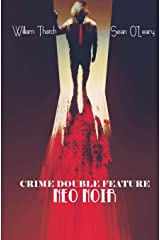
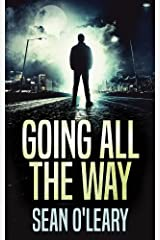
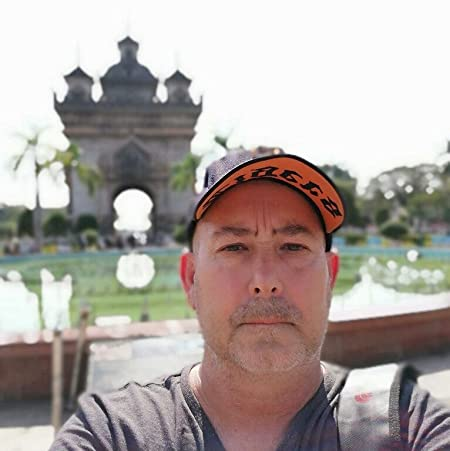
What genre/s do you write in, and why? Crime and literary fiction, mostly. I have published a few sci-fi/spec-fic short stories but never a novella or longer. I started out writing literary crime stories that were a little dark or had an edge. I always read crime novels so it seemed natural to write some crime short stories.
I got a deal to publish a short story collection but the publisher specialized in sci-fi so asked me to write a few sci-fi stories to add to the crime/literary mix. It was heaps of fun and I got to work with sci-fi writer Simon Petrie who edited the collection and helped me enormously.
I have been fortunate to publish crime and literary short story collections, novellas and novels but I haven’t written a sci-fi or spec fic longer piece, yet but I love Haruki Murakami and Kazuo Ishiguro so I’ll try and write a spec-fic novella or longer one day.
When did you begin writing, and was it something you’ve always wanted to do? I remember I was about twenty-two (I am fifty-nine now) and living in a share house in Melbourne. I wrote a few short stories but never showed anyone, however, I didn’t first submit anything until I was around forty-four or forty-five. My first story was in a NZ magazine called Bravado.
What type of research goes into your writing? I don’t go to the State Library and go through the microfiche or anything and I’m not knocking that, I may well do it one day. Some hardcore research that is. But I’m a panster not a planner in my writing. I use Google and other search engines. Got o the library to get certain books or access them online. But mostly I read and watch films and TV series. There’s so much inspiration and knowledge to gain that way.
How do you develop your characters, plot, and setting? Oh well, I just mentioned I’m a panster but I read a lot. If I want to write a thriller or a pulp novel then I read a lot of them and from the top guys too. I have one ‘self help’ book and that is Writing Fiction; By Gary Disher. He’s a topnotch crime writer and the book is a gold mine. Plus, I look at films and how the plot is worked out and character development the same thing. Yeah, the Disher book and watching and reading. Films are great. I mean they put a whole life or story into one-and-half hours. Ninety pages if you like. There’s a lot to learn there.
What is your creative process (i.e. inspiration, where do you write)? I think I covered inspiration re reading and watching films etc. But real life too. Not so much anymore but I listen and watch. More snapshots than whole characters. If I hear a funny snippet or horrible take down. Something like that and then I change it anyway to fit it in with what I’m writing.
I write in bed, at my desk, on the couch, out walking I take notes. A couple of hours walking I can write a whole story in my head sometimes.
Have you ever dealt with writer’s block? If so, how do you find your creative flow again? Once I started writing I never had writer’s block. Sometimes I stop for a week to watch a test match or similar and find it slightly hard to get back in the groove but nothing to worry about.
Are you self-published or traditionally published? I self-published my crime novella ‘The Heat’ but my other books (six and another next year) are traditionally published and I think I’ve had about forty or more short stories in magazines both online and in print.
Can you give us your experience in either or both of these types of publishing? Self-publishing ‘The Heat’ was cool. A lot of fun. I used one of my own photos of Bangkok for the cover and had it pro edited and the layout done by Busybird, who are a cool publisher who do this kind of thing but also run novella competitions and short story competitions with cash prizes and publications. I like the way they give back in this way.
The other books were traditionally published by I guess wat you call small press although my latest crime book is with ‘Next Chapter’ who are bigger, more mainstream, with a marketing team and so on. I had an audio book done for the first time for ‘Going All the Way’ my crime thriller, it was a lot of fun.
Small press are cool though.
Do you market your own books? If so, how easy or difficult is this for an author? I’ll do whatever the publisher tells me to do. It’s not my field of expertise. I’ll take advice from all over.
What advice would you give other writers/authors about receiving negative reviews? Zero.
What advice would you give to wanna-be writers who are trying to get a book published? Just never give up and don’t dismiss small press, there’s a lot of highly creative, highly professionally people working in this area.
If you had a chance to meet one of your favorite authors, alive or dead, who would it be? And what questions would you ask? I think Graeme Greene. He did novels and then what he called entertainment but he wrote an absolute shit load of books and said he only wrote 500 words a day. And The Quiet American and Brighton Rock etc and killer books and I might ask about character more than plot. He has great characters.
List your book links and where we can find them to purchase? I have link tree here: linktr.ee/Seanoleary
Thank you for chatting with us today at RWS, we appreciate your time. Thank you for the opportunity, it was cool. [image error]



Published on January 17, 2022 04:30
January 3, 2022
A Character Interview With Michael Warren
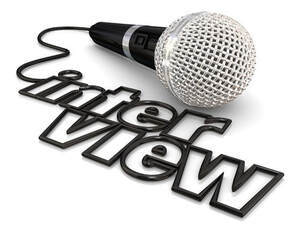 Hello everyone, Rookie Writers Solutions would like to share a conversation with Michael Warren, main character in B. Roman’s suspense fiction Whatever Became of Sin?
Hello everyone, Rookie Writers Solutions would like to share a conversation with Michael Warren, main character in B. Roman’s suspense fiction Whatever Became of Sin?What is your idea of perfect happiness? My family safe and sound, the bad guys put away, making sure the Justice system works fairly for everyone.
What is your greatest fear? That I won’t find my real daughter before her kidnappers kill her. You see, my real baby girl was switched at birth and hidden away where no one would find her. Dominique, the child I thought was mine, died at the age of 6 from contaminated ground water, and only then did I learn the truth.
What is the trait you most deplore in yourself? Being unable (or unwilling) to deal with my wife’s mental decline. I thought she was in denial about Dominique until I came to know how her horrendous life with her brutal, racist father had shaped her. Also, I was too involved in my work and disappointed my daughter too many times, but she always forgave me. I needed so much forgiveness.
What is the trait you most deplore in others? Racism, betrayal, corruption, deception. An utter disregard for the lives of others for nothing more than personal gain.
What do you consider the most overrated virtue? Moral righteousness. Most of it is pretentious and self-serving.
On what occasion do you lie? When the truth will push my wife over the edge of despair into suicide. I have to wait for the right moment to tell her the truth about our birth daughter (Angelique) so that she will no longer blame herself for Dominique’s death.
What do you most dislike about your appearance? I purposely try to stay fit and dress well. I’m sure as I get older I will see some flaws that are discouraging.
What is the quality you most like in a man? Honesty, integrity. I have not found it here in New Orleans while I search for my child. But I keep hoping that there is someone here that I can trust.
What is the quality you most like in a woman? A sense of humor. Kindness toward others. A woman who also has an identity of her own, a talent that contributes something of beauty to the world. Elaine was like that, a gifted pianist who could also laugh and be spontaneous.
What or who is the greatest love of your life? My wife Elaine. No matter what she thinks of me now, we were soul mates when we met and if she ever comes to terms with the death of Dominique, I think we can repair our relationship. In my desperate search for my real baby girl, I came to love another woman, but I was shocked to discover that she was complicit in the deceit that destroyed my marriage to Elaine. This woman will pay the price in ways she could never have imagined.
When and where were you happiest? In Philadelphia, when I was studying law and courting Elaine, a true Southern Belle. That was before we were forced to move to New Orleans and I became involved in my father-in-law’s shady business. But I guess you can’t go home again.
Which talent would you most like to have? I enjoy woodworking, making things with my hands. I wish I could make a living at it.
If you could change one thing about yourself, what would it be? If I could go back in time, I would never miss another of my late daughter’s birthdays or any important day in her life. I would be more present for the people I love.
What do you consider your greatest achievement? Finally bringing to justice the people who were complicit in an evil scheme to switch my newborn daughter with another baby for their own selfish motives. This heinous conspiracy destroyed so many lives. The sweetest revenge is not that they went to prison, but that I was able to turn their own lives against them in shocking and surprising ways.
Where would you most like to live? I enjoy New Orleans - its culture, the mystery and romance - but now it has too many painful memories for me. If I can reunite my family I will return to San Francisco and rebuild my practice there as an environmental activist.
What is your favorite occupation? I am an attorney who fights for environmental causes and takes down greedy corporate and political interests who pollute the environment and kill innocent children.
What is your most marked characteristic? I have no problem saying what I think or calling people on their B.S. Also, Tenacity. I won’t stop until I know the truth and expose wrongdoing wherever it exists, no matter how powerful the perpetrators are.
What do you most value in your friends? Loyalty. Truth. That they will be there for me in the bad times as well as the good.
Author name: Barbara Roman (a.k.a B. Roman)
List of books and where they can be found:
A Man’s Face (suspense)
Whatever Became of Sin? (suspense)
The Moon Singer Series
Book I: The Crystal Clipper
Book II: The War Chamber
Book III: The Wind Rose
Prequel: Before the Boy
Children’s Books by Barbara Roman
Alicia and the Light Bulb People in Star Factory 13
Hubert in Heaven - a hi-tech angel gets his wings
Amazon author page: http://viewauthor.at/BRomanBooks
Goodreads page: www.goodreads.com/author/show/7358514.B_Roman
Thank you for chatting with us today at RWS, we appreciate your time.
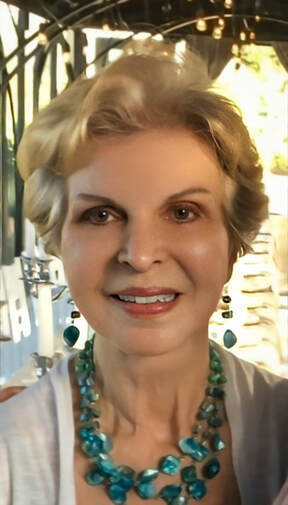
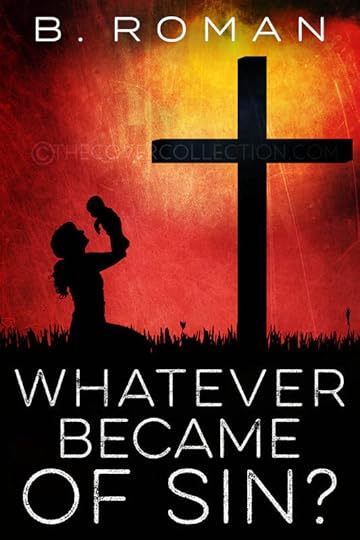
Published on January 03, 2022 04:30
December 20, 2021
Author Interview With James Quinn
[image error] Welcome everyone! Pull up a chair and have a seat as we chat with James Quinn and learn more about his writing and books.
Tell us your name or pseudonym: My name is James Quinn and I am the author of the “Gorilla Grant” series of spy novels.
What genre/s do you write in, and why? I write in the espionage/thriller genre. It’s something that I have always enjoyed reading, certainly from my early teens, and it’s something that has fascinated me ever since. I’ve become a bit of a collector of old spy novels but like most people my favorite writers in the genre are John LeCarre, Len Deighton, Frederick Forsyth, Ian Fleming and Graham Greene.
When did you begin writing, and was it something you’ve always wanted to do? I have always loved writing. I remember winning competitions in school for short stories and it has never really stopped. I hit my 40’s and figured out that if I was ever going to write a book then it had to be now or I never would. I’ve done some amazing things in my life but above all I always wanted to be a writer and have books published. The day that my books were published it was an amazing feeling, as if I’d joined a secret, elite club.
What type of research goes into your writing? It depends, but it is usually about locations that I’ve never been too or that no longer exist. People always assume that it’s the “secret” stuff relating to espionage, but as I work in a related field that has never been an issue and I’ve never had to worry about trying to figure that aspect out.
I remember for my first book, A Game for Assassins, which is set in the 1960’s that I seemed to spend an awful lot of time trying to find out what gadgets were available to intelligence operatives during that time period, which was kind of fun.
How do you develop your characters, plot, and setting? For me it’s always the characters that come first. It’s the characters that I find the most interesting, and then I build the story around them. I may have a rough idea of the story and where I want it to go, but really it’s an organic process and I let the characters lead the way.
From there it becomes a case of letting the story “brew” in its own way – we take some wrong turns, we get back on track, and finally, hopefully, everything works out and makes sense to the readers.
What is your creative process (i.e. inspiration, where do you write)? For me it’s about delivering a human aspect to a fantastical story and making the characters fit seamlessly into that world. So as I say, characters are paramount, then it’s a story that highlights a threat or an issue, (exposed spy network, terrorist attack, eliminating a rival assassin) and then see how the characters react within that environment.
When I write it’s usually in my upstairs office where no one can disturb me. It has to be quiet – I can’t do music or background noise – and coffee, plenty of coffee. I never force the story, it either comes and flows naturally or I leave it alone. But when it does come it comes in bursts like machine gun fire…until the next time when there is a pause and then the whole process starts again. I’m not one of those writers that has a dedicated 9 to 5 regime.
Have you ever dealt with writer’s block? If so, how do you find your creative flow again? Not so much writers block, more about not sure if certain ideas will work. If that happens I step away from the writing, a day…a week…a few months and go and do other things. Walking has always helped me clear my head and think things through. It gives me perspective. Plus I live by the coast so it’s always a pleasure to walk along the beach.
Are you self-published or traditionally published? Can you give us your experience in either or both of these types of publishing? I’ve been both. I started off as a self published writer, and then quickly moved over to a publishing house – Creativia (now Next Chapter) – and I’ve never looked back. It’s been an amazing learning experience about how the industry works and the pitfalls for new writers. Luckily I’ve had some good people around me to help me navigate everything.
Do you market your own books? If so, how easy or difficult is this for an author? I usually do my own marketing and I leave the publisher to do their marketing for the books – between us we seem to do very well. Marketing is vital for a publisher; it’s having that team on hand and a strategy and budget that can make the difference. But that’s only half the story; these days all authors should be marketing their books as well. It’s more of a full time job than the actual writing!! The days of sitting back and letting the publisher do everything are long gone – even for the big publishing houses!!
What advice would you give other writers/authors about receiving negative reviews? Read them if you want to but don’t become obsessed by them. It’s only one person’s opinion. If the critique is valid, then learn from it and improve for next time. But the golden rule is that you never, and I mean NEVER, respond to a negative review. There is no good news to be had from that.
What advice would you give to wanna-be writers who are trying to get a book published? Don’t quit!! Keep going! There are enough resources out there these days to make it happen for you. If you have a story to tell and you want to share it with the world then a good mindset and determination will get you through.
If you had a chance to meet one of your favorite authors, alive or dead, who would it be? And what questions would you ask? I always used to say the spy writer John LeCarre, and that’s still valid. But after reading his memoirs and biography I think I’ve gotten to the heart of him. The only other one that I would like to share a coffee with would be the late William Goldman (author of Marathon Man and The Princess Bride) just to talk about his Hollywood screenwriting experiences.
List your book links and where we can find them to purchase:
The James Quinn books are available through all good and reputable retail platforms:
https://books2read.com/b/bzZpMq
https://www.nextchapter.pub/authors/james-quinn-british-espionage-thriller-author
http://mybook.to/clandestinejq
Thank you for chatting with us today at RWS, we appreciate your time.
It was my absolute pleasure and thank you for hosting me. Best wishes, James.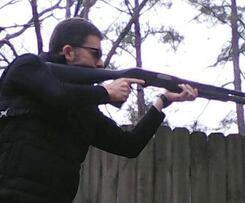
Tell us your name or pseudonym: My name is James Quinn and I am the author of the “Gorilla Grant” series of spy novels.
What genre/s do you write in, and why? I write in the espionage/thriller genre. It’s something that I have always enjoyed reading, certainly from my early teens, and it’s something that has fascinated me ever since. I’ve become a bit of a collector of old spy novels but like most people my favorite writers in the genre are John LeCarre, Len Deighton, Frederick Forsyth, Ian Fleming and Graham Greene.
When did you begin writing, and was it something you’ve always wanted to do? I have always loved writing. I remember winning competitions in school for short stories and it has never really stopped. I hit my 40’s and figured out that if I was ever going to write a book then it had to be now or I never would. I’ve done some amazing things in my life but above all I always wanted to be a writer and have books published. The day that my books were published it was an amazing feeling, as if I’d joined a secret, elite club.
What type of research goes into your writing? It depends, but it is usually about locations that I’ve never been too or that no longer exist. People always assume that it’s the “secret” stuff relating to espionage, but as I work in a related field that has never been an issue and I’ve never had to worry about trying to figure that aspect out.
I remember for my first book, A Game for Assassins, which is set in the 1960’s that I seemed to spend an awful lot of time trying to find out what gadgets were available to intelligence operatives during that time period, which was kind of fun.
How do you develop your characters, plot, and setting? For me it’s always the characters that come first. It’s the characters that I find the most interesting, and then I build the story around them. I may have a rough idea of the story and where I want it to go, but really it’s an organic process and I let the characters lead the way.
From there it becomes a case of letting the story “brew” in its own way – we take some wrong turns, we get back on track, and finally, hopefully, everything works out and makes sense to the readers.
What is your creative process (i.e. inspiration, where do you write)? For me it’s about delivering a human aspect to a fantastical story and making the characters fit seamlessly into that world. So as I say, characters are paramount, then it’s a story that highlights a threat or an issue, (exposed spy network, terrorist attack, eliminating a rival assassin) and then see how the characters react within that environment.
When I write it’s usually in my upstairs office where no one can disturb me. It has to be quiet – I can’t do music or background noise – and coffee, plenty of coffee. I never force the story, it either comes and flows naturally or I leave it alone. But when it does come it comes in bursts like machine gun fire…until the next time when there is a pause and then the whole process starts again. I’m not one of those writers that has a dedicated 9 to 5 regime.
Have you ever dealt with writer’s block? If so, how do you find your creative flow again? Not so much writers block, more about not sure if certain ideas will work. If that happens I step away from the writing, a day…a week…a few months and go and do other things. Walking has always helped me clear my head and think things through. It gives me perspective. Plus I live by the coast so it’s always a pleasure to walk along the beach.
Are you self-published or traditionally published? Can you give us your experience in either or both of these types of publishing? I’ve been both. I started off as a self published writer, and then quickly moved over to a publishing house – Creativia (now Next Chapter) – and I’ve never looked back. It’s been an amazing learning experience about how the industry works and the pitfalls for new writers. Luckily I’ve had some good people around me to help me navigate everything.
Do you market your own books? If so, how easy or difficult is this for an author? I usually do my own marketing and I leave the publisher to do their marketing for the books – between us we seem to do very well. Marketing is vital for a publisher; it’s having that team on hand and a strategy and budget that can make the difference. But that’s only half the story; these days all authors should be marketing their books as well. It’s more of a full time job than the actual writing!! The days of sitting back and letting the publisher do everything are long gone – even for the big publishing houses!!
What advice would you give other writers/authors about receiving negative reviews? Read them if you want to but don’t become obsessed by them. It’s only one person’s opinion. If the critique is valid, then learn from it and improve for next time. But the golden rule is that you never, and I mean NEVER, respond to a negative review. There is no good news to be had from that.
What advice would you give to wanna-be writers who are trying to get a book published? Don’t quit!! Keep going! There are enough resources out there these days to make it happen for you. If you have a story to tell and you want to share it with the world then a good mindset and determination will get you through.
If you had a chance to meet one of your favorite authors, alive or dead, who would it be? And what questions would you ask? I always used to say the spy writer John LeCarre, and that’s still valid. But after reading his memoirs and biography I think I’ve gotten to the heart of him. The only other one that I would like to share a coffee with would be the late William Goldman (author of Marathon Man and The Princess Bride) just to talk about his Hollywood screenwriting experiences.
List your book links and where we can find them to purchase:
The James Quinn books are available through all good and reputable retail platforms:
https://books2read.com/b/bzZpMq
https://www.nextchapter.pub/authors/james-quinn-british-espionage-thriller-author
http://mybook.to/clandestinejq
Thank you for chatting with us today at RWS, we appreciate your time.
It was my absolute pleasure and thank you for hosting me. Best wishes, James.

Published on December 20, 2021 05:00
December 13, 2021
HOW TO HOOK YOUR READER FOR YOUR NOVEL (repost)
[image error] source: Kobo Writing Life According to Just Publishing Advice, Amazon Associates states there is one new Kindle book published every minute and forty-two seconds on Amazon. Can you believe it? Did that get your attention? I hope so because this is an example of a hook, which is how you open the first sentence or paragraph to grab a reader’s attention and keep them glued to the very end of your story or article. Your hook can contain a statistic such as this, a quote, or a shocking anecdote. With so many books published, it’s vitally important to have a great first “hook” in your story because let’s face it; there is a lot of stiff competition out there to keep a readers attention and build a fan base. But you’ll also need more than that first sentence or paragraph to keep the reader hooked. Here are some tips on how to do just that:What Makes a Good Chapter? Ideally, each chapter should contain a small dramatic arc within the larger dramatic arc of the entire novel. The story or article rises to its climax through peaks and valleys of dramatic tension formed by scenes within chapters. Every chapter should rise to a small climax and then relax at the end, which creates a bridge to the next chapter. Using tension through a problem of intrigue keeps the reader wanting more. It doesn’t matter how many scenes you have in a chapter, just make sure one peak should be larger than the rest.Creating the Scene – A scene is a series of action that carries the reader from one point of view, during a particular period of time, in a specific place. It uses the same dramatic arc as discussed above in creating a chapter. A chapter could consist of a single scene or two or more brief scenes. Make sure every scene has a climax point, and the climax point signals a new scene. Be sure your peak doesn’t occur too early because the rest of the chapter can seem flat and excessively long.The Three Rules of Creating a Strong Scene:Advance the plotDeepen characterizationEnrich the setting You can have a scene with only two of these things, but it won’t be as strong. If it only does one of these three things, then you’ll need to revise to make it stronger. You can introduce your main character for the first time, describe the scenery, and convey where the story takes place. It may not advance the main plot, but it’s fine for the first scene in a novel and contains two of the three rules. 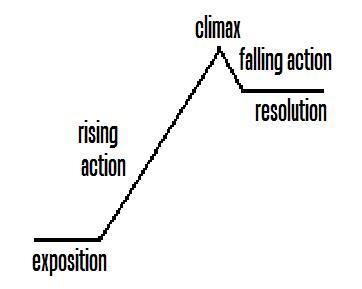 source: questgarden.com Character, First and Foremost – While vivid description can hook your reader, characterization is what really matters. You want your readers to care and admire your character. Make them real and complex by giving them a health issue, or struggling with difficult childhood memories, or even someone diagnosed with PTSD. When they can relate to your character, they’ll be hooked and ready to read and learn more about their story.Give Your Character Something to Do – While description is a good way to introduce your character and setting, you’ll want to add more action to make the ride exciting. An example could be a drunk who creates a disruption on a subway and confronts your character. Your character may stop the drunk from accosting another person. Maybe your character’s father was an abusive alcoholic, and he is incensed with anyone who drinks.It’s all in the details – At first, the action, details of character, and the setting must carry your story. No matter what is going on in your character’s day, the details need to be vivid enough to engage your readers’ interest. The story may just be getting started, but readers are already making up their minds if the character is real enough to care about, and whether they’re going to continue reading the next 400 pages.Invite the Reader Into Your Story – Let’s use the premise of your character and the drunk on the subway. Your character stood up to a drunk to protect another passenger. The readers will think not only does your character take care of himself, but he also comes to the defense of someone else. You’ve just created reader hooks and a good peak of tension with 1) an admirable character, 2) fast-paced with action, and 3) a warning of trouble brewing.Develop Your Hooks – Introduce your story and the main character with an interesting, vivid scene. Create strong hooks to grab your reader. Show your character in some action so the reader can learn their personality. Let your imagination roam. You can open a scene with your character scuba diving on a reef and the regulator malfunctions, and they run out of air, or someone is about to walk down the aisle and has second thoughts of getting married. Just be sure your character is believable. Create something fun, exciting, or even dangerous. This is the fun part of writing, using your creativity to create a world for others to enjoy. [image error] source: Pinterest.com Who Is Telling Your Story? At some point, you’ve decided whether to write in first-person using the “I” voice such as I focused the lens of my Pentax-K 500 and saw the heaving creamy breasts bobble over the pink lace underwire push-up bra. Or third person using “he” or “she.” She lay like a battered rag doll with haunted lifeless eyes staring up into nowhere. That choice is entirely up to you, the writer. Whatever you choose, make sure your character’s voice is strong. A boring, monotone voice will lose the reader. If you’re having difficulty choosing which voice to use, try writing a few sentences in both. You’ll soon discover which voice resonates with you, and will work better for your story.The Flashback – One possible “hook” in the opening of your story is to use a dramatic plot event, and then cut quickly to a scene from the past. However, be sure your flashback is critical in telling your story. Don’t include them unnecessarily. It could potentially stop forward momentum, pushing your reader backward. Your story should move like a steam engine: pushing forward with great speed. You also don’t want your reader to become more interested in the flashback. Make sure the flashback’s benefits outweigh the drawbacks.
Show, Don’t Tell
– This goes without saying. There is much controversy over this method, but I for one, agree with showing instead of telling what’s taking place with your characters. I, as a reader, love being pulled into the story as if I was sitting right there having tea, or fighting for my life hanging on a cliff. When telling, you’re stating a fact. An example would be your character is old, short, sad, or happy. Whereas, in showing you help the reader see this in their mind’s eye by describing your character being short because others in the story are looking down at him. Sad? Your character’s eyes are puffy from crying, or their nose is red from blowing so hard, or simply a tear-stained face. Remember, actions speak louder than words.
Narrative
Distance – Here are three examples of narrative distance:Near-zero distance – This type of narrative is where you bring the reader inside the head of the character. They only see what the character sees, hears, and tastes, etc.Moderate distance – The reader is standing back, not looking through the eyes of the character. As readers, we get more details, but we no longer share the character’s experience.Extreme distance – This allows you to show the reader the larger picture without the limitations of a single character’s point of view.I hope these tips have helped you with creating the hook for your story or article, as well as ways to keep the reader wanting more. However you choose to write your story, develop your characters, or use your hook, remember…Keep on Writing!
source: questgarden.com Character, First and Foremost – While vivid description can hook your reader, characterization is what really matters. You want your readers to care and admire your character. Make them real and complex by giving them a health issue, or struggling with difficult childhood memories, or even someone diagnosed with PTSD. When they can relate to your character, they’ll be hooked and ready to read and learn more about their story.Give Your Character Something to Do – While description is a good way to introduce your character and setting, you’ll want to add more action to make the ride exciting. An example could be a drunk who creates a disruption on a subway and confronts your character. Your character may stop the drunk from accosting another person. Maybe your character’s father was an abusive alcoholic, and he is incensed with anyone who drinks.It’s all in the details – At first, the action, details of character, and the setting must carry your story. No matter what is going on in your character’s day, the details need to be vivid enough to engage your readers’ interest. The story may just be getting started, but readers are already making up their minds if the character is real enough to care about, and whether they’re going to continue reading the next 400 pages.Invite the Reader Into Your Story – Let’s use the premise of your character and the drunk on the subway. Your character stood up to a drunk to protect another passenger. The readers will think not only does your character take care of himself, but he also comes to the defense of someone else. You’ve just created reader hooks and a good peak of tension with 1) an admirable character, 2) fast-paced with action, and 3) a warning of trouble brewing.Develop Your Hooks – Introduce your story and the main character with an interesting, vivid scene. Create strong hooks to grab your reader. Show your character in some action so the reader can learn their personality. Let your imagination roam. You can open a scene with your character scuba diving on a reef and the regulator malfunctions, and they run out of air, or someone is about to walk down the aisle and has second thoughts of getting married. Just be sure your character is believable. Create something fun, exciting, or even dangerous. This is the fun part of writing, using your creativity to create a world for others to enjoy. [image error] source: Pinterest.com Who Is Telling Your Story? At some point, you’ve decided whether to write in first-person using the “I” voice such as I focused the lens of my Pentax-K 500 and saw the heaving creamy breasts bobble over the pink lace underwire push-up bra. Or third person using “he” or “she.” She lay like a battered rag doll with haunted lifeless eyes staring up into nowhere. That choice is entirely up to you, the writer. Whatever you choose, make sure your character’s voice is strong. A boring, monotone voice will lose the reader. If you’re having difficulty choosing which voice to use, try writing a few sentences in both. You’ll soon discover which voice resonates with you, and will work better for your story.The Flashback – One possible “hook” in the opening of your story is to use a dramatic plot event, and then cut quickly to a scene from the past. However, be sure your flashback is critical in telling your story. Don’t include them unnecessarily. It could potentially stop forward momentum, pushing your reader backward. Your story should move like a steam engine: pushing forward with great speed. You also don’t want your reader to become more interested in the flashback. Make sure the flashback’s benefits outweigh the drawbacks.
Show, Don’t Tell
– This goes without saying. There is much controversy over this method, but I for one, agree with showing instead of telling what’s taking place with your characters. I, as a reader, love being pulled into the story as if I was sitting right there having tea, or fighting for my life hanging on a cliff. When telling, you’re stating a fact. An example would be your character is old, short, sad, or happy. Whereas, in showing you help the reader see this in their mind’s eye by describing your character being short because others in the story are looking down at him. Sad? Your character’s eyes are puffy from crying, or their nose is red from blowing so hard, or simply a tear-stained face. Remember, actions speak louder than words.
Narrative
Distance – Here are three examples of narrative distance:Near-zero distance – This type of narrative is where you bring the reader inside the head of the character. They only see what the character sees, hears, and tastes, etc.Moderate distance – The reader is standing back, not looking through the eyes of the character. As readers, we get more details, but we no longer share the character’s experience.Extreme distance – This allows you to show the reader the larger picture without the limitations of a single character’s point of view.I hope these tips have helped you with creating the hook for your story or article, as well as ways to keep the reader wanting more. However you choose to write your story, develop your characters, or use your hook, remember…Keep on Writing!
originally published: The Creative Penn
 source: questgarden.com Character, First and Foremost – While vivid description can hook your reader, characterization is what really matters. You want your readers to care and admire your character. Make them real and complex by giving them a health issue, or struggling with difficult childhood memories, or even someone diagnosed with PTSD. When they can relate to your character, they’ll be hooked and ready to read and learn more about their story.Give Your Character Something to Do – While description is a good way to introduce your character and setting, you’ll want to add more action to make the ride exciting. An example could be a drunk who creates a disruption on a subway and confronts your character. Your character may stop the drunk from accosting another person. Maybe your character’s father was an abusive alcoholic, and he is incensed with anyone who drinks.It’s all in the details – At first, the action, details of character, and the setting must carry your story. No matter what is going on in your character’s day, the details need to be vivid enough to engage your readers’ interest. The story may just be getting started, but readers are already making up their minds if the character is real enough to care about, and whether they’re going to continue reading the next 400 pages.Invite the Reader Into Your Story – Let’s use the premise of your character and the drunk on the subway. Your character stood up to a drunk to protect another passenger. The readers will think not only does your character take care of himself, but he also comes to the defense of someone else. You’ve just created reader hooks and a good peak of tension with 1) an admirable character, 2) fast-paced with action, and 3) a warning of trouble brewing.Develop Your Hooks – Introduce your story and the main character with an interesting, vivid scene. Create strong hooks to grab your reader. Show your character in some action so the reader can learn their personality. Let your imagination roam. You can open a scene with your character scuba diving on a reef and the regulator malfunctions, and they run out of air, or someone is about to walk down the aisle and has second thoughts of getting married. Just be sure your character is believable. Create something fun, exciting, or even dangerous. This is the fun part of writing, using your creativity to create a world for others to enjoy. [image error] source: Pinterest.com Who Is Telling Your Story? At some point, you’ve decided whether to write in first-person using the “I” voice such as I focused the lens of my Pentax-K 500 and saw the heaving creamy breasts bobble over the pink lace underwire push-up bra. Or third person using “he” or “she.” She lay like a battered rag doll with haunted lifeless eyes staring up into nowhere. That choice is entirely up to you, the writer. Whatever you choose, make sure your character’s voice is strong. A boring, monotone voice will lose the reader. If you’re having difficulty choosing which voice to use, try writing a few sentences in both. You’ll soon discover which voice resonates with you, and will work better for your story.The Flashback – One possible “hook” in the opening of your story is to use a dramatic plot event, and then cut quickly to a scene from the past. However, be sure your flashback is critical in telling your story. Don’t include them unnecessarily. It could potentially stop forward momentum, pushing your reader backward. Your story should move like a steam engine: pushing forward with great speed. You also don’t want your reader to become more interested in the flashback. Make sure the flashback’s benefits outweigh the drawbacks.
Show, Don’t Tell
– This goes without saying. There is much controversy over this method, but I for one, agree with showing instead of telling what’s taking place with your characters. I, as a reader, love being pulled into the story as if I was sitting right there having tea, or fighting for my life hanging on a cliff. When telling, you’re stating a fact. An example would be your character is old, short, sad, or happy. Whereas, in showing you help the reader see this in their mind’s eye by describing your character being short because others in the story are looking down at him. Sad? Your character’s eyes are puffy from crying, or their nose is red from blowing so hard, or simply a tear-stained face. Remember, actions speak louder than words.
Narrative
Distance – Here are three examples of narrative distance:Near-zero distance – This type of narrative is where you bring the reader inside the head of the character. They only see what the character sees, hears, and tastes, etc.Moderate distance – The reader is standing back, not looking through the eyes of the character. As readers, we get more details, but we no longer share the character’s experience.Extreme distance – This allows you to show the reader the larger picture without the limitations of a single character’s point of view.I hope these tips have helped you with creating the hook for your story or article, as well as ways to keep the reader wanting more. However you choose to write your story, develop your characters, or use your hook, remember…Keep on Writing!
source: questgarden.com Character, First and Foremost – While vivid description can hook your reader, characterization is what really matters. You want your readers to care and admire your character. Make them real and complex by giving them a health issue, or struggling with difficult childhood memories, or even someone diagnosed with PTSD. When they can relate to your character, they’ll be hooked and ready to read and learn more about their story.Give Your Character Something to Do – While description is a good way to introduce your character and setting, you’ll want to add more action to make the ride exciting. An example could be a drunk who creates a disruption on a subway and confronts your character. Your character may stop the drunk from accosting another person. Maybe your character’s father was an abusive alcoholic, and he is incensed with anyone who drinks.It’s all in the details – At first, the action, details of character, and the setting must carry your story. No matter what is going on in your character’s day, the details need to be vivid enough to engage your readers’ interest. The story may just be getting started, but readers are already making up their minds if the character is real enough to care about, and whether they’re going to continue reading the next 400 pages.Invite the Reader Into Your Story – Let’s use the premise of your character and the drunk on the subway. Your character stood up to a drunk to protect another passenger. The readers will think not only does your character take care of himself, but he also comes to the defense of someone else. You’ve just created reader hooks and a good peak of tension with 1) an admirable character, 2) fast-paced with action, and 3) a warning of trouble brewing.Develop Your Hooks – Introduce your story and the main character with an interesting, vivid scene. Create strong hooks to grab your reader. Show your character in some action so the reader can learn their personality. Let your imagination roam. You can open a scene with your character scuba diving on a reef and the regulator malfunctions, and they run out of air, or someone is about to walk down the aisle and has second thoughts of getting married. Just be sure your character is believable. Create something fun, exciting, or even dangerous. This is the fun part of writing, using your creativity to create a world for others to enjoy. [image error] source: Pinterest.com Who Is Telling Your Story? At some point, you’ve decided whether to write in first-person using the “I” voice such as I focused the lens of my Pentax-K 500 and saw the heaving creamy breasts bobble over the pink lace underwire push-up bra. Or third person using “he” or “she.” She lay like a battered rag doll with haunted lifeless eyes staring up into nowhere. That choice is entirely up to you, the writer. Whatever you choose, make sure your character’s voice is strong. A boring, monotone voice will lose the reader. If you’re having difficulty choosing which voice to use, try writing a few sentences in both. You’ll soon discover which voice resonates with you, and will work better for your story.The Flashback – One possible “hook” in the opening of your story is to use a dramatic plot event, and then cut quickly to a scene from the past. However, be sure your flashback is critical in telling your story. Don’t include them unnecessarily. It could potentially stop forward momentum, pushing your reader backward. Your story should move like a steam engine: pushing forward with great speed. You also don’t want your reader to become more interested in the flashback. Make sure the flashback’s benefits outweigh the drawbacks.
Show, Don’t Tell
– This goes without saying. There is much controversy over this method, but I for one, agree with showing instead of telling what’s taking place with your characters. I, as a reader, love being pulled into the story as if I was sitting right there having tea, or fighting for my life hanging on a cliff. When telling, you’re stating a fact. An example would be your character is old, short, sad, or happy. Whereas, in showing you help the reader see this in their mind’s eye by describing your character being short because others in the story are looking down at him. Sad? Your character’s eyes are puffy from crying, or their nose is red from blowing so hard, or simply a tear-stained face. Remember, actions speak louder than words.
Narrative
Distance – Here are three examples of narrative distance:Near-zero distance – This type of narrative is where you bring the reader inside the head of the character. They only see what the character sees, hears, and tastes, etc.Moderate distance – The reader is standing back, not looking through the eyes of the character. As readers, we get more details, but we no longer share the character’s experience.Extreme distance – This allows you to show the reader the larger picture without the limitations of a single character’s point of view.I hope these tips have helped you with creating the hook for your story or article, as well as ways to keep the reader wanting more. However you choose to write your story, develop your characters, or use your hook, remember…Keep on Writing!originally published: The Creative Penn
Published on December 13, 2021 04:30
December 6, 2021
A Character Interview With Rey (Reynalda Fonne-Werde)
 Hello everyone, Rookie Writers Solutions would like to share a conversation with Rey (Reynalda Fonne-Werde), one of the founding members of the Triple Threat Investigation Agency.
Hello everyone, Rookie Writers Solutions would like to share a conversation with Rey (Reynalda Fonne-Werde), one of the founding members of the Triple Threat Investigation Agency.What is your idea of perfect happiness? Having every store in every mall running a Black Friday sale!
What is your greatest fear? Not solving a case. But we (my cousin JJ and BFF Linda) have done really well so far as rookie private eyes.
What is the trait you most deplore in yourself? I have no “deplorable” traits . . . well, maybe not having a large vocabulary (Linda has to provide definitions once in a while). But it’s all good. I’m good. 😊
What is the trait you most deplore in others? Self-centeredness. People who are all about themselves really bug me.
What is your greatest extravagance? Buying designer shoes/bags at full price (but I so love them).
What do you consider the most overrated virtue? Humbleness. . . . Sometimes, it seems so . . . forced.
On what occasion do you lie? When we’re trying to catch a perp. I don’t like to tell fibs and I don’t much care for fibbers either but, on occasion, it’s a must-do.
What do you most dislike about your appearance? I like how I look (I put a lot of time, energy, and money into it). But, if I had to pick something, I’d say my eyes. I wear contacts because they’re otherwise such a drab color (pigeon-gray is so not pretty).
What is the quality you most like in a man? Chivalry. I guess I’m old-fashioned in some ways; I like having men open doors and pulling out chairs, asking what I want, and making me feel like, well, a princess.
What is the quality you most like in a woman? Directness. I like women who tell it like it is, won’t take “no” for an answer, and plunge into something they believe is worth pursuing.
Which words or phrases do you most overuse? Swear/curse words aside, I’d say I tend to overuse “nummy”, “man”, and “pishaw”.
What or who is the greatest love of your life? I’m still looking!
When and where were you happiest? I’m happy right now, living on Oahu with JJ and Linda; we established the agency not that long ago and it’s going well.
Which talent would you most like to have? I can sing and dance and act, so what other talent is there? Just joking. I don’t know if it’s considered a talent, but I suppose I’d like to excel in one of the martial arts. You know, come to that, being able to paint like Rembrandt would be kinda nice.
If you could change one thing about yourself, what would it be? I’d like to be smarter (sometimes Linda makes me feel dumb).
What do you consider your greatest achievement? All the B-movies I made and the fans I [still] have.
Where would you most like to live? I’m living exactly where I’d most like to: Hawaii.
What is your most treasured possession? My rescue rabbit, Bonzo. He’s not a possession like jewelry or artwork, or anything like that. But he’s dear to me and I treasure every moment I have with him. (Who’d have ever thought me, Rey Fonne-Werde, would ever have pet, much less love it with all my heart and soul?)
What is your favorite occupation? It’s a toss-up between being an actress and a private eye, both of which I am. But if I had to pick one that was out there, then I’d go with piloting. It’d be awesome to fly a plane (you have to admire people that can navigate across the globe).
What is your most marked characteristic? My charm? 😊
What do you most value in your friends? It’s a cross between honesty and compassion.
What is your motto? A problem is only a challenge to be conquered.
Author name: Tyler Colins
Author page: https://www.nextchapter.pub/authors/tyler-colins
List of books and where they can be found: https://www.amazon.ca/Books-Tyler-Colins/s?rh=n%3A916520%2Cp_27%3ATyler+Colins
Thank you for chatting with us today at RWS, we appreciate your time!
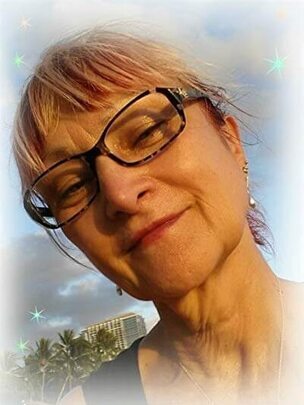
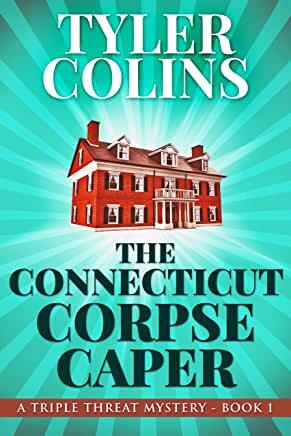
Published on December 06, 2021 11:57
May 13, 2019
Key Components for Your Synopsis
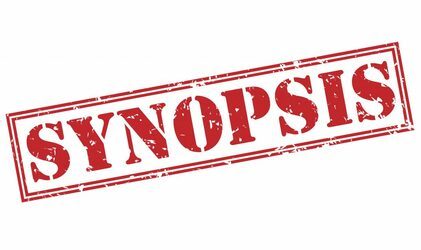 This is your pitch, your foot in the door description of your article and/or novel that will allow the editor to understand the full concept from beginning to end without further explanation. This will give them a taste of your writing skill and must be as well written as your story. This is a key component for any writer and must be done with all the talent and eloquence you can gather.
This is your pitch, your foot in the door description of your article and/or novel that will allow the editor to understand the full concept from beginning to end without further explanation. This will give them a taste of your writing skill and must be as well written as your story. This is a key component for any writer and must be done with all the talent and eloquence you can gather.How long should your synopsis be? It will depend on the submission guidelines. If they only want 1-2 pages, then that’s what you submit. If they don’t give any specific length, than a good rule to follow is, 1-2 pages per every 50 pages of your manuscript. If you are submitting for an article, no more than one page should be sufficient.
Now the big question…how do I pack a 300-page manuscript into 12 double-spaced pages? Here’s where you get to be creative. The synopsis should read like your novel, telling the story, but just not as wordy. Here are a few tips on how to summarize your novel.
Jot down a list of the ten most important scenes in your story, remembering the strong hook.List your main characters, those with strong points of view, and try to limit no more than 4-8 characters.Thread those ten important scenes together, showing focus through point of view and character reactions to what is happening in the story.Try to build as much tension as you have in your story and eliminate those stale scenes. Be sure to check for active verbs.Heighten the emotion and include any motivation you may have missed for your characters.End with a satisfying resolution; they do want to know how the story ends.Simple is best – don’t try to use the thesaurus to sound fancy or extravagant. Being concise is vital.Be sure to entertain, all of the fun or fear should be included in your synopsis.Add tension and focus action through emotion in every scene.You want to make the editor care for your characters. Even though this may be a fiction story, you want the characters to be believable.Try to rid your synopsis of clichés and please don’t forget to let the editor know how to reach you. Include your address, phone number, and email.I hope these tips help you with your synopsis, and remember...Keep on Writing!
Published on May 13, 2019 03:30
May 6, 2019
Interview With New Author: Cheyenne Bennett & Her Work In Progress (WIP)
[image error] courtesy: christinaconsolino.com Name or pseudonym: Cheyenne Bennett
What genre/s do you write in, and why?
Fantasy. Daily life is stressful, and Fantasy provides an escape. It is a place where you battle ancient dragons or fall in love with someone from another realm. It lets you explore endless possibilities.
When did you begin writing, and was it something you’ve always wanted to do?
I have always been a writer. It has been a passion of mine since I was a child. I probably have hundreds of half-finished stories that I wrote as a child.
What type of research goes into your writing?
It depends on what I am writing about. If my story deals with a spiritual path, I will immerse myself into that culture and learn all that I can. If my story is about magical beasts, I take some inspiration from mythological beasts, but I also add my own flair to them.
How do you develop your characters, plot, and setting?
I just write, honestly. I try to keep a base plot and characters, but as you write, they get a personality of their own and evolve in their own way. There have been several times where I tried to force the characters to do what I want, but the end result is never natural feeling. It really is amazing how they get a life of their own and lead the story.
What is your creative process (i.e. inspiration, where do you write)?
My ideas come from that in-between space of being awake and sleeping. I believe it is because I don’t have the daily distractions that I have during the daytime. The ideas come in visual flashes, almost as if I am dreaming. Those are usually the nights where I get so excited and I stay up the entire night, scribbling in a notebook.
Have you ever dealt with writer’s block? If so, how do you find your creative flow again?
I have several times and it happens when I try to force my characters to do things my way. If I simply let them lead and write their story, the words flow. When I try to force it then it just gets blocked, sometimes for weeks. It is only when I relax and let them take charge is when I become unstuck.
Tell us a little about your Work in Progress (WIP):
Title: The Goddess of Chaos
Blurb: With betrayal, mysteries, and untruths on every side, who can she trust and will she even make it out alive?
Victoria Wells’s life is blissful - if not a little dull. However, where ever she goes, chaos seems to follow her. Only her fiancé, Gerald, can keep her balanced. That all changes when Victoria Wells falls asleep in her fiancé’s car on the way to their wedding. Hours later, she is woken up - chained to a bed in a strange new world. An eccentric man she had a bizarre encounter with earlier, is standing above her.
From there, everything grows more twisted. The strange man tells her that she’s in the Underworld of all places. And what’s more, she’s the powerful and merciless Goddess of Chaos.
Could she be having a fever dream, or is everything … real? With forces vying for her powers, her fiancé - who is truly the God of Chaos - acting increasingly evil and the powers of Chaos itself growing more powerful and unstable in her veins, Victoria isn’t convinced that she - or the world itself - will survive an unbalanced Chaos incarnate.
Sorcerers, dragons, Gods and Goddesses, romance, and adventure, follow Victoria as she faces a terrifying truth and navigates an increasingly chaotic - and dangerous - existence
What inspired you to write this WIP?
The original concept for this came from when I was probably 12-year-old. I created this world, plot and characters in my head, and I would go inside it as a way to escape my daily life. I have kept that up for the last 13 years. The story itself has evolved beautifully from the original concept and I’m excited to finally invite people to come and explore that world.
When will this WIP be published?
The release date is on June 8, 2019. It will be ready for preorder on May 22, 2019.
How will you publish this WIP, and why did you choose this route?
I will be self-publishing this book. I chose this route because it is notoriously hard to get a traditional publisher when you are still an unknown author. I wanted to prove my worth, first.
Will you market your own books? If so, what is your plan?
I will market my own books. My first book, The Goddess of Chaos, I am going relatively easy on it. This book is to show readers that I am an author worth reading. I have several large Facebook groups I am planning to offer my book for free in. Of course, I will also be advertising on Goodreads, as well. That should give me reviews and put my name out there. When I release my second book, working title is Emma Trappings and the Demon of Elderoge. I will truly market with Podcasts and sites such as BookBub, and others.
What advice would you give to wanna-be writers who are trying to get a book published?
Just do it. It is scary, putting something that you put your blood, sweat, and tears in to be criticized by strangers. But there is something magical when someone chooses your books out of all the other ones to read and they really fall in love with your characters and the world that you built. Don’t take rejection as a sign that you are not meant to do it. See it as a lesson and keep growing your skills as a writer.
If you had a chance to meet one of your favorite authors, alive or dead, who would it be? And what questions would you ask?
I think I would love to meet Poe. I’m not really sure what kind of questions I would want to ask. He was such a brilliant and unique writer; I would love to just talk with him.
List your book/website links: https://jwilddesigns.com/bestoffantasy/
Thank you for chatting with us today at RWS, we appreciate your time.
Thank you for having me! I really appreciate it.
 If you have any questions for Cheyenne, please comment below. And remember...Keep on Writing!
If you have any questions for Cheyenne, please comment below. And remember...Keep on Writing!
What genre/s do you write in, and why?
Fantasy. Daily life is stressful, and Fantasy provides an escape. It is a place where you battle ancient dragons or fall in love with someone from another realm. It lets you explore endless possibilities.
When did you begin writing, and was it something you’ve always wanted to do?
I have always been a writer. It has been a passion of mine since I was a child. I probably have hundreds of half-finished stories that I wrote as a child.
What type of research goes into your writing?
It depends on what I am writing about. If my story deals with a spiritual path, I will immerse myself into that culture and learn all that I can. If my story is about magical beasts, I take some inspiration from mythological beasts, but I also add my own flair to them.
How do you develop your characters, plot, and setting?
I just write, honestly. I try to keep a base plot and characters, but as you write, they get a personality of their own and evolve in their own way. There have been several times where I tried to force the characters to do what I want, but the end result is never natural feeling. It really is amazing how they get a life of their own and lead the story.
What is your creative process (i.e. inspiration, where do you write)?
My ideas come from that in-between space of being awake and sleeping. I believe it is because I don’t have the daily distractions that I have during the daytime. The ideas come in visual flashes, almost as if I am dreaming. Those are usually the nights where I get so excited and I stay up the entire night, scribbling in a notebook.
Have you ever dealt with writer’s block? If so, how do you find your creative flow again?
I have several times and it happens when I try to force my characters to do things my way. If I simply let them lead and write their story, the words flow. When I try to force it then it just gets blocked, sometimes for weeks. It is only when I relax and let them take charge is when I become unstuck.
Tell us a little about your Work in Progress (WIP):
Title: The Goddess of Chaos
Blurb: With betrayal, mysteries, and untruths on every side, who can she trust and will she even make it out alive?
Victoria Wells’s life is blissful - if not a little dull. However, where ever she goes, chaos seems to follow her. Only her fiancé, Gerald, can keep her balanced. That all changes when Victoria Wells falls asleep in her fiancé’s car on the way to their wedding. Hours later, she is woken up - chained to a bed in a strange new world. An eccentric man she had a bizarre encounter with earlier, is standing above her.
From there, everything grows more twisted. The strange man tells her that she’s in the Underworld of all places. And what’s more, she’s the powerful and merciless Goddess of Chaos.
Could she be having a fever dream, or is everything … real? With forces vying for her powers, her fiancé - who is truly the God of Chaos - acting increasingly evil and the powers of Chaos itself growing more powerful and unstable in her veins, Victoria isn’t convinced that she - or the world itself - will survive an unbalanced Chaos incarnate.
Sorcerers, dragons, Gods and Goddesses, romance, and adventure, follow Victoria as she faces a terrifying truth and navigates an increasingly chaotic - and dangerous - existence
What inspired you to write this WIP?
The original concept for this came from when I was probably 12-year-old. I created this world, plot and characters in my head, and I would go inside it as a way to escape my daily life. I have kept that up for the last 13 years. The story itself has evolved beautifully from the original concept and I’m excited to finally invite people to come and explore that world.
When will this WIP be published?
The release date is on June 8, 2019. It will be ready for preorder on May 22, 2019.
How will you publish this WIP, and why did you choose this route?
I will be self-publishing this book. I chose this route because it is notoriously hard to get a traditional publisher when you are still an unknown author. I wanted to prove my worth, first.
Will you market your own books? If so, what is your plan?
I will market my own books. My first book, The Goddess of Chaos, I am going relatively easy on it. This book is to show readers that I am an author worth reading. I have several large Facebook groups I am planning to offer my book for free in. Of course, I will also be advertising on Goodreads, as well. That should give me reviews and put my name out there. When I release my second book, working title is Emma Trappings and the Demon of Elderoge. I will truly market with Podcasts and sites such as BookBub, and others.
What advice would you give to wanna-be writers who are trying to get a book published?
Just do it. It is scary, putting something that you put your blood, sweat, and tears in to be criticized by strangers. But there is something magical when someone chooses your books out of all the other ones to read and they really fall in love with your characters and the world that you built. Don’t take rejection as a sign that you are not meant to do it. See it as a lesson and keep growing your skills as a writer.
If you had a chance to meet one of your favorite authors, alive or dead, who would it be? And what questions would you ask?
I think I would love to meet Poe. I’m not really sure what kind of questions I would want to ask. He was such a brilliant and unique writer; I would love to just talk with him.
List your book/website links: https://jwilddesigns.com/bestoffantasy/
Thank you for chatting with us today at RWS, we appreciate your time.
Thank you for having me! I really appreciate it.

 If you have any questions for Cheyenne, please comment below. And remember...Keep on Writing!
If you have any questions for Cheyenne, please comment below. And remember...Keep on Writing!
Published on May 06, 2019 03:30
April 29, 2019
How to Hook Your Reader for Your Novel
[image error] source: Kobo Writing Life According to Just Publishing Advice, Amazon Associates states there is one new Kindle book published every minute and forty-two seconds on Amazon. Can you believe it? Did that get your attention? I hope so because this is an example of a hook, which is how you open the first sentence or paragraph to grab a reader’s attention and keep them glued to the very end of your story or article. Your hook can contain a statistic such as this, a quote, or a shocking anecdote. With so many books published, it’s vitally important to have a great first “hook” in your story because let’s face it; there is a lot of stiff competition out there to keep a readers attention and build a fan base. But you’ll also need more than that first sentence or paragraph to keep the reader hooked. Here are some tips on how to do just that:What Makes a Good Chapter? Ideally, each chapter should contain a small dramatic arc within the larger dramatic arc of the entire novel. The story or article rises to its climax through peaks and valleys of dramatic tension formed by scenes within chapters. Every chapter should rise to a small climax and then relax at the end, which creates a bridge to the next chapter. Using tension through a problem of intrigue keeps the reader wanting more. It doesn’t matter how many scenes you have in a chapter, just make sure one peak should be larger than the rest.Creating the Scene – A scene is a series of action that carries the reader from one point of view, during a particular period of time, in a specific place. It uses the same dramatic arc as discussed above in creating a chapter. A chapter could consist of a single scene or two or more brief scenes. Make sure every scene has a climax point, and the climax point signals a new scene. Be sure your peak doesn’t occur too early because the rest of the chapter can seem flat and excessively long.The Three Rules of Creating a Strong Scene:Advance the plotDeepen characterizationEnrich the setting You can have a scene with only two of these things, but it won’t be as strong. If it only does one of these three things, then you’ll need to revise to make it stronger. You can introduce your main character for the first time, describe the scenery, and convey where the story takes place. It may not advance the main plot, but it’s fine for the first scene in a novel and contains two of the three rules.
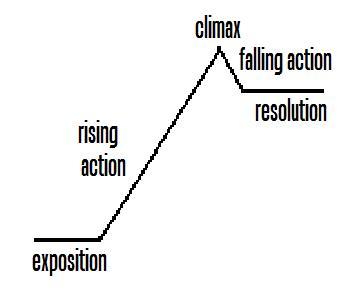 source: questgarden.com Character, First and Foremost – While vivid description can hook your reader, characterization is what really matters. You want your readers to care and admire your character. Make them real and complex by giving them a health issue, or struggling with difficult childhood memories, or even someone diagnosed with PTSD. When they can relate to your character, they’ll be hooked and ready to read and learn more about their story.Give Your Character Something to Do – While description is a good way to introduce your character and setting, you’ll want to add more action to make the ride exciting. An example could be a drunk who creates a disruption on a subway and confronts your character. Your character may stop the drunk from accosting another person. Maybe your character’s father was an abusive alcoholic, and he is incensed with anyone who drinks.It’s all in the details – At first, the action, details of character, and the setting must carry your story. No matter what is going on in your character’s day, the details need to be vivid enough to engage your readers’ interest. The story may just be getting started, but readers are already making up their minds if the character is real enough to care about, and whether they’re going to continue reading the next 400 pages.Invite the Reader Into Your Story – Let’s use the premise of your character and the drunk on the subway. Your character stood up to a drunk to protect another passenger. The readers will think not only does your character take care of himself, but he also comes to the defense of someone else. You’ve just created reader hooks and a good peak of tension with 1) an admirable character, 2) fast-paced with action, and 3) a warning of trouble brewing.Develop Your Hooks – Introduce your story and the main character with an interesting, vivid scene. Create strong hooks to grab your reader. Show your character in some action so the reader can learn their personality. Let your imagination roam. You can open a scene with your character scuba diving on a reef and the regulator malfunctions, and they run out of air, or someone is about to walk down the aisle and has second thoughts of getting married. Just be sure your character is believable. Create something fun, exciting, or even dangerous. This is the fun part of writing, using your creativity to create a world for others to enjoy.
source: questgarden.com Character, First and Foremost – While vivid description can hook your reader, characterization is what really matters. You want your readers to care and admire your character. Make them real and complex by giving them a health issue, or struggling with difficult childhood memories, or even someone diagnosed with PTSD. When they can relate to your character, they’ll be hooked and ready to read and learn more about their story.Give Your Character Something to Do – While description is a good way to introduce your character and setting, you’ll want to add more action to make the ride exciting. An example could be a drunk who creates a disruption on a subway and confronts your character. Your character may stop the drunk from accosting another person. Maybe your character’s father was an abusive alcoholic, and he is incensed with anyone who drinks.It’s all in the details – At first, the action, details of character, and the setting must carry your story. No matter what is going on in your character’s day, the details need to be vivid enough to engage your readers’ interest. The story may just be getting started, but readers are already making up their minds if the character is real enough to care about, and whether they’re going to continue reading the next 400 pages.Invite the Reader Into Your Story – Let’s use the premise of your character and the drunk on the subway. Your character stood up to a drunk to protect another passenger. The readers will think not only does your character take care of himself, but he also comes to the defense of someone else. You’ve just created reader hooks and a good peak of tension with 1) an admirable character, 2) fast-paced with action, and 3) a warning of trouble brewing.Develop Your Hooks – Introduce your story and the main character with an interesting, vivid scene. Create strong hooks to grab your reader. Show your character in some action so the reader can learn their personality. Let your imagination roam. You can open a scene with your character scuba diving on a reef and the regulator malfunctions, and they run out of air, or someone is about to walk down the aisle and has second thoughts of getting married. Just be sure your character is believable. Create something fun, exciting, or even dangerous. This is the fun part of writing, using your creativity to create a world for others to enjoy. 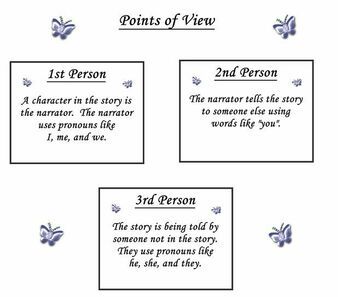 source: Pinterest.com
source: Pinterest.com
Who Is Telling Your Story? At some point, you’ve decided whether to write in first-person using the “I” voice such as I focused the lens of my Pentax-K 500 and saw the heaving creamy breasts bobble over the pink lace underwire push-up bra. Or third person using “he” or “she.” She lay like a battered rag doll with haunted lifeless eyes staring up into nowhere. That choice is entirely up to you, the writer. Whatever you choose, make sure your character’s voice is strong. A boring, monotone voice will lose the reader. If you’re having difficulty choosing which voice to use, try writing a few sentences in both. You’ll soon discover which voice resonates with you, and will work better for your story.The Flashback – One possible “hook” in the opening of your story is to use a dramatic plot event, and then cut quickly to a scene from the past. However, be sure your flashback is critical in telling your story. Don’t include them unnecessarily. It could potentially stop forward momentum, pushing your reader backward. Your story should move like a steam engine: pushing forward with great speed. You also don’t want your reader to become more interested in the flashback. Make sure the flashback’s benefits outweigh the drawbacks. Show, Don’t Tell – This goes without saying. There is much controversy over this method, but I for one, agree with showing instead of telling what’s taking place with your characters. I, as a reader, love being pulled into the story as if I was sitting right there having tea, or fighting for my life hanging on a cliff. When telling, you’re stating a fact. An example would be your character is old, short, sad, or happy. Whereas, in showing you help the reader see this in their mind’s eye by describing your character being short because others in the story are looking down at him. Sad? Your character’s eyes are puffy from crying, or their nose is red from blowing so hard, or simply a tear-stained face. Remember, actions speak louder than words. Narrative Distance – Here are three examples of narrative distance:Near-zero distance – This type of narrative is where you bring the reader inside the head of the character. They only see what the character sees, hears, and tastes, etc.Moderate distance – The reader is standing back, not looking through the eyes of the character. As readers, we get more details, but we no longer share the character’s experience.Extreme distance – This allows you to show the reader the larger picture without the limitations of a single character’s point of view. I hope these tips have helped you with creating the hook for your story or article, as well as ways to keep the reader wanting more. However you choose to write your story, develop your characters, or use your hook, remember…Keep on Writing!
originally published: The Creative Penn
 source: questgarden.com Character, First and Foremost – While vivid description can hook your reader, characterization is what really matters. You want your readers to care and admire your character. Make them real and complex by giving them a health issue, or struggling with difficult childhood memories, or even someone diagnosed with PTSD. When they can relate to your character, they’ll be hooked and ready to read and learn more about their story.Give Your Character Something to Do – While description is a good way to introduce your character and setting, you’ll want to add more action to make the ride exciting. An example could be a drunk who creates a disruption on a subway and confronts your character. Your character may stop the drunk from accosting another person. Maybe your character’s father was an abusive alcoholic, and he is incensed with anyone who drinks.It’s all in the details – At first, the action, details of character, and the setting must carry your story. No matter what is going on in your character’s day, the details need to be vivid enough to engage your readers’ interest. The story may just be getting started, but readers are already making up their minds if the character is real enough to care about, and whether they’re going to continue reading the next 400 pages.Invite the Reader Into Your Story – Let’s use the premise of your character and the drunk on the subway. Your character stood up to a drunk to protect another passenger. The readers will think not only does your character take care of himself, but he also comes to the defense of someone else. You’ve just created reader hooks and a good peak of tension with 1) an admirable character, 2) fast-paced with action, and 3) a warning of trouble brewing.Develop Your Hooks – Introduce your story and the main character with an interesting, vivid scene. Create strong hooks to grab your reader. Show your character in some action so the reader can learn their personality. Let your imagination roam. You can open a scene with your character scuba diving on a reef and the regulator malfunctions, and they run out of air, or someone is about to walk down the aisle and has second thoughts of getting married. Just be sure your character is believable. Create something fun, exciting, or even dangerous. This is the fun part of writing, using your creativity to create a world for others to enjoy.
source: questgarden.com Character, First and Foremost – While vivid description can hook your reader, characterization is what really matters. You want your readers to care and admire your character. Make them real and complex by giving them a health issue, or struggling with difficult childhood memories, or even someone diagnosed with PTSD. When they can relate to your character, they’ll be hooked and ready to read and learn more about their story.Give Your Character Something to Do – While description is a good way to introduce your character and setting, you’ll want to add more action to make the ride exciting. An example could be a drunk who creates a disruption on a subway and confronts your character. Your character may stop the drunk from accosting another person. Maybe your character’s father was an abusive alcoholic, and he is incensed with anyone who drinks.It’s all in the details – At first, the action, details of character, and the setting must carry your story. No matter what is going on in your character’s day, the details need to be vivid enough to engage your readers’ interest. The story may just be getting started, but readers are already making up their minds if the character is real enough to care about, and whether they’re going to continue reading the next 400 pages.Invite the Reader Into Your Story – Let’s use the premise of your character and the drunk on the subway. Your character stood up to a drunk to protect another passenger. The readers will think not only does your character take care of himself, but he also comes to the defense of someone else. You’ve just created reader hooks and a good peak of tension with 1) an admirable character, 2) fast-paced with action, and 3) a warning of trouble brewing.Develop Your Hooks – Introduce your story and the main character with an interesting, vivid scene. Create strong hooks to grab your reader. Show your character in some action so the reader can learn their personality. Let your imagination roam. You can open a scene with your character scuba diving on a reef and the regulator malfunctions, and they run out of air, or someone is about to walk down the aisle and has second thoughts of getting married. Just be sure your character is believable. Create something fun, exciting, or even dangerous. This is the fun part of writing, using your creativity to create a world for others to enjoy.  source: Pinterest.com
source: Pinterest.com Who Is Telling Your Story? At some point, you’ve decided whether to write in first-person using the “I” voice such as I focused the lens of my Pentax-K 500 and saw the heaving creamy breasts bobble over the pink lace underwire push-up bra. Or third person using “he” or “she.” She lay like a battered rag doll with haunted lifeless eyes staring up into nowhere. That choice is entirely up to you, the writer. Whatever you choose, make sure your character’s voice is strong. A boring, monotone voice will lose the reader. If you’re having difficulty choosing which voice to use, try writing a few sentences in both. You’ll soon discover which voice resonates with you, and will work better for your story.The Flashback – One possible “hook” in the opening of your story is to use a dramatic plot event, and then cut quickly to a scene from the past. However, be sure your flashback is critical in telling your story. Don’t include them unnecessarily. It could potentially stop forward momentum, pushing your reader backward. Your story should move like a steam engine: pushing forward with great speed. You also don’t want your reader to become more interested in the flashback. Make sure the flashback’s benefits outweigh the drawbacks. Show, Don’t Tell – This goes without saying. There is much controversy over this method, but I for one, agree with showing instead of telling what’s taking place with your characters. I, as a reader, love being pulled into the story as if I was sitting right there having tea, or fighting for my life hanging on a cliff. When telling, you’re stating a fact. An example would be your character is old, short, sad, or happy. Whereas, in showing you help the reader see this in their mind’s eye by describing your character being short because others in the story are looking down at him. Sad? Your character’s eyes are puffy from crying, or their nose is red from blowing so hard, or simply a tear-stained face. Remember, actions speak louder than words. Narrative Distance – Here are three examples of narrative distance:Near-zero distance – This type of narrative is where you bring the reader inside the head of the character. They only see what the character sees, hears, and tastes, etc.Moderate distance – The reader is standing back, not looking through the eyes of the character. As readers, we get more details, but we no longer share the character’s experience.Extreme distance – This allows you to show the reader the larger picture without the limitations of a single character’s point of view. I hope these tips have helped you with creating the hook for your story or article, as well as ways to keep the reader wanting more. However you choose to write your story, develop your characters, or use your hook, remember…Keep on Writing!
originally published: The Creative Penn
Published on April 29, 2019 04:18
April 22, 2019
Citing Internet Sources...A Necessary Evil
 With the ease of finding so much information on the internet, we sometimes forget that we need to be sure to cite anything we have obtained for our use in a magazine, book, or blog post. Many editors require a list of sources to help their fact checkers. It'll also establish your credibility. If nothing else, documenting your sources is important for your own records. The information found may not be there in six months.
With the ease of finding so much information on the internet, we sometimes forget that we need to be sure to cite anything we have obtained for our use in a magazine, book, or blog post. Many editors require a list of sources to help their fact checkers. It'll also establish your credibility. If nothing else, documenting your sources is important for your own records. The information found may not be there in six months.The following are sample entries for citing Internet sources:
Basic form:
Author's Last Name, First Name. "Title of Work." Title of Complete Work. Date of electronic publication .
Scholary project:
Title of scholarly project/editor/date of electronic publication/sponsor/date of access /electronic address (URL)
Professional site:
Portuguese Language Page. U of Chicago. 1 May 1997 .
eBook:
Author’s last name, First name. “Title of the chapter or section.” Title of the e-book, translated by or edited by First name Last name, vol. number, Publisher, Year of publication, page number(s). Title of the web site or database, URL.
Poem:
Last Name, First Name. "Title of Poem." Website Title. Date of poem published (day-month-year order). Publication Medium (Web). Date you accessed poem.
Article in a reference database:
Author, A. A., & Author, B. B. (Date of publication). Title of article. Title of Journal, volume number, page range. Retrieved from https://www.someaddress.com/full/url/
Article in a journal:
Flannagan, Roy. "Reflections on Milton and Ariosto." Early Modern Literary Studies 2.3 (1996): 16 pars. 22 Feb. 1997 .
Article in a web magazine:
Last, First M. "Article Title." Magazine Title. Date Month Year Published: Page(s). Print.
Posting to a discussion list:
Merrian, Joanne. "Spinoff: Monsterpiece Theatre." Online posting. 30 Apr. 1994. Shaksper: the Global Electronic Shakespeare Conference. 27 Aug. 1997 .
Personal site:
Last Name, First Name. Home page. Day Month Year .
Blog post:
Author’s Last Name, Author’s First Name. “Title of Post.” Blog Name, Publisher (only include this information if it is different than the name of the blog site), Date blog post was published, Link to post (omit http:// or https://).
I hope this helps guide you along the way to cite your sources. And as always...Keep on Writing!
Sources:
Alphin's et al. Searching: A Research Guide for Writers. Writer's Institute Publications: 2008. Print.
© 2001-2018 EasyBib, a Chegg service.
Published on April 22, 2019 03:00

